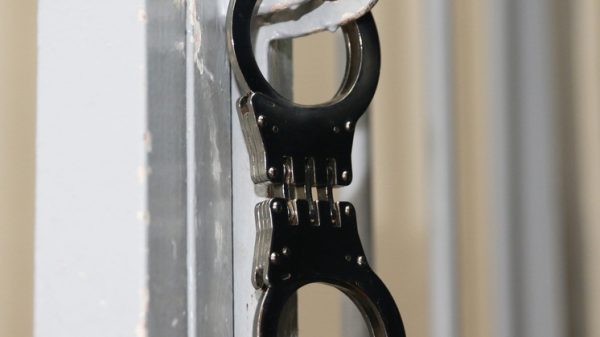 George Ford scores against Argentina. Photo: Getty Images/Gaspafotos/MB Media
George Ford scores against Argentina. Photo: Getty Images/Gaspafotos/MB Media
Let's be clear: England didn't do this. were almost convincing enough to be considered World Cup favorites despite winning both their first pool matches.
And yet they may not be getting enough recognition for their performances just yet. After two tours that included ultimately comfortable wins over Argentina and Japan, the report card should give them a strong pass.
Here's the explanation, considering both the terrible and impressive aspects to date.
Positive aspects: AdaptabilityAlthough his team's performance in four warm-up games was compromised by their preparation schedule, Steve Borthwick did not expect to encounter so many setbacks. Injuries to Anthony Watson, Jack van Poortvliet and Tom Curry (previously even Luke Cowan-Dickie) and the suspensions of Owen Farrell and Billy Vunipola could seriously disrupt selection plans.
Then, within three minutes of the first leg against Argentina, Curry's red card threatened further chaos. Instead, England struck and pulled even tighter. After the Pumas were routed by a daring and cunning effort, Japan presented itself with unexpected challenges. Jamie Joseph suggested the Brave Flowers surprised England with their solidity and unconventional short kicks, including a mischievous hook over Yatuka Nagare's head. Japan threw a total of 37 kicks to lure opponents out of position and defended staunchly.
Weather was another variable. It was still 23 degrees Celsius at the Stade de Nice early Monday morning. The humidity at night was stifling because too much moisture makes catching and passing difficult, especially under pressure from a tight defense. Similar conditions were in place at the 2019 tournament in Japan, which may have been one of the benefits of Borthwick filling his team with veterans from that World Cup.
Finally, as the next section will show, England seem to respond intelligently to referees. Ben Earl was hit twice by Niki Amashukeli in the opening 22 minutes of the win over Japan. The flanker explained that England had chosen to rely on line speed rather than the breakdown that could lead to fouls to subsequently disrupt the attack.
Kicking and lineout work is involved
Regardless of entertainment value, there cannot There will no longer be any doubt about England's tactical identity. And rugby is a sport where the combination of belief and fitness makes a big difference.
Essentially, sport is moving forward by any means necessary — and all meters are valuable. England overtook Argentina 1,074 to 852 meters and then Japan 1,177 to 938 meters. They also won the second game by a run of 516-334 metres. Argentina carried more than them (308 to 233 metres) but England conceded only seven penalties to 13 from the frenzied Pumas. Lowering George Ford's goals also helped.
Discipline takes many forms. England conceded just 13 penalties in 160 minutes, which is a good result. Equally important, they were persistent and trusted their strategy. Squad is obviously an invaluable component here, as would be expected from a team led by Borthwick, who was humble enough to enlist additional set-piece guidance from former pupil George Kruis.
Courtney Lawes complemented the lock pairing of Maro Itoje and Ollie Chessouma, giving Jamie George a trio of jumpers with which to create a solid platform. England may have lost three of Japan's 13 shots and scored all seven against Argentina, but they struck hard in Nice.
In their opponents' throws, following the trend established during warm-up tests, they performed admirably. The Pumas failed four of 15 lineouts before Japan surrendered four of 12. England's interception led to a Lewis Ludlum try. Itoje rose to compete, with Chessum running to the rear. A few minutes earlier, Ford had connected a smart chip to the sensor device. Lineout and kicking strategies go hand in hand.
Revival of Defense
Given the disarray of the warm-up defeat to Fiji, which was marred by glaring individual errors, the response from Kevin Sinfield's defense was extraordinary. Missing a try in two matches is respectable and two aspects stand out. The first is decision-making in the face of failure, with Lawes and Joe Marler forcing key turnovers close to their own try line in the first two matches. The second is a tangible desire.
Joe Marchant sealed victory over Japan with a bonus-point try. Much earlier, in the 12th minute, the outside center crossed and grabbed two forwards: Jone Nykabala and then Lomano Lemeki. Marchant pulled Nykabala down and bounced off the floor as the offload went to Lemeki, setting the tone. Japan expanded the Sinfield system, but England bent without breaking. They fought tooth and nail for each other.
Squads and substitutions confirmed
Under Borthwick, Leicester Tigers lived by the «every game as it comes» mentality, as very few teams can. Their head coach tailored his approach to each opponent and the players maintained an unwavering focus on a weekly basis. Borthwick has so far assessed his matchday lineups well and timed his substitutions well at the weekend.
Dan Cole lived up to his start against Argentina and Marler did the same against Japan. England's strong bench was empty after 50 minutes in Nice. Tired Japan found it difficult to contain the introductions of Vunipola, Ellis Genge and Ollie Lawrence, while Ben Youngs and Marcus Smith, the latter at full-back, provided encouragement. The influence of the set-piece only grew. Borthwick realized that the final quarter would be decisive and acted accordingly. Players say he brings clarity to their roles in the squad. It seems that this is indeed the case.
Ben Earl arrivesFord, Lawes, Itoje and George have been vital for England, but one player steps forward as the star player. Having waited more than three years between his Test debut and his first England start, Earl has rattled off five balls in a row and looks right at home. A moderate defensive threat complements the outstanding strengths of his game; athleticism and offensive instincts. Japan was his chance to demonstrate more of these virtues. He rallied at the base of the scrum, despite having seven balls on his back, and moved towards the touchlines to give England some extra lightning.
The emergence of Vunipola seemed to free him up even more, although this may have been because Earl grew and grew as the match went on. The 25-year-old gained 76 meters from 15 kicks and appears to be in exceptional explosive form. Aled Walters and Tom Tombleson have the team in excellent condition in terms of fitness, and Earl is top of the class. What happens when Curry returns from suspension? Earl, of course, remains in place.
Negatives: “Missed chances” persist
England look like a team that will be difficult to contain if they get ahead because they can squeeze teams. However, at the same time, they struggle to attract decent leads because opportunities for impactful attempts are missed. Freddie Steward struck from close range in the opening three minutes on Saturday and at half-time, with England ahead 10-9, they decided to go into touch from the penalty spot.
Although their mace strained their muscles, England made a break and Earl passed to George. The hooker apparently expected the ball to hit Ludlam instead and failed to cope when the ball hit him in the face. England quickly added three points on both occasions, but there is much to be said for the performances at fives and sevens. As it happened, Japan were able to stay close and were only 13-12 behind until Laws realized enough to capitalize on Marler's 55th-minute header.
England produced eight clean breaks, which should have been enough to register more tries with clearer thinking in the wide field and in open space. Elliot Daly came on early in the second period after some brilliant interplay between Kyle Sinclair, Ford, Laws and Earle took him out of the game. Alex Mitchell ran down the field demanding a chip into an unguarded space. Against stronger teams England cannot afford to waste.
Perception problem?
Borthwick admitted that England's cohesion had increased during the victory over Japan, meaning they had made a very awkward start. The sound of the traveling fans booing Mitchell's second-half strike reflected frustration with a territory-first gameplan that was likely to move from patience to bloodshed at times. Sometimes you wonder if it's worth hiring a PR agency to practice tactical kicking.
France also hit the ball long and try to take advantage of the opportunities the defense gives them. The difference is that they have intoxicating individual strikers such as Antoine Dupont, Damian Penaud and Thomas Ramos, as well as greater cohesion and greater intent to get into space earlier in the attacking sequence. For England, these measures are under development. They were more ambitious in the second half against Japan, with Ford deftly playing Johnny May inside his own 22, allowing the latter to gallop away. Here they win back Ben Youngs' free-kick and pass the ball across the pitch through Earl, Smith, Ford and Lawrence:
I think this was an important point. Shows that England could be a little more ambitious early in the attacking sequence after Youngs' shot was saved (a la France). Earl > Smith > Ford >Lawrence and the ball flies across the field into space. This is how the Tigers developed. pic.twitter.com/BaHfM67Bif
— Charlie Morgan (@CharlieFelix) September 18, 2023
A revitalized attack breaks through the Japan 22 table and Smith gets another touch with his intuitive support. Leicester developed similarly under Borthwick, with the European Cup win at Clermont in April 2022 an excellent example of their better transition attack. Despite losing Guy Porter to a red card, the Tigers scored five tries with just 54 rucks in possession.
At the moment, England are easy to laugh at and their record in France is seriously questioned. First, Argentina's shortcomings were highlighted. It further highlighted that Japan has experienced a disappointing cycle and is currently ranked 14th in the world. Cynics wonder how badly England will be beaten if they play a good team. However, at the same time, Borthwick makes them difficult to defeat. They face Chile in Lille this Saturday before facing Samoa. Then, they hope, knockouts. And who knows what will happen next?
Borthwick's withdrawal will be a crucial decision on how to balance his defensive line when Farrell returns. Currently, with midfield Manu Tuilagi and Marchand ahead of Steward at full-back, Daley's distribution is placed under a relatively heavy load. Borthwick will gather information, develop a plan and make sure his players work hard to implement it. That's for sure.
RWC Promo Book


























































Свежие комментарии